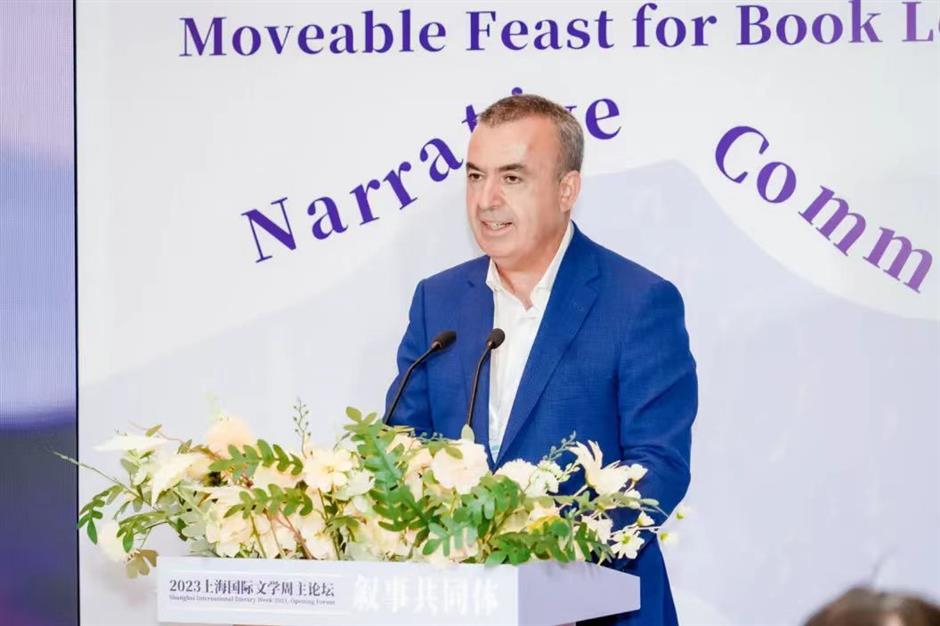International Literary Week addresses 'narrative community'
The 10th Shanghai International Literary Week, with the theme of "Narrative Community," has invited 28 guests from around the world for more than 40 literary discussions and other activities running through next Monday.
The literary week was launched on August 15 with a three-hour discussion on "narrative community" at JIC bookstore on North Bund. This year, the literary week will again host guests and readers in bookstores and literary venues around the city, including the new lakeside Duoyun Bookstore in the Lingang New Area.
"The concept of 'narrative community' indicates the crisis facing literary writing," said Chen Fumin, famed critic and vice president of the Chinese Association of Contemporary Literature.
"That means novelists today are forced to step outside the traditional worship of literature, and instead consider and respond to new cultural challenges and new narrative possibilities. It requires literary narrative to confront such challenges and enter the new civilization."

The Shanghai International Literary Week returns with the theme of "Narrative Community."
Spanish novelist Lorenzo Silva, who has had several novels adapted into other narratives including films and television, expressed his concern at writers tempted by other narratives that restrict literary possibilities.
"I often serve as a jury member for literary prizes, and there are many works that are influenced, and for some, only influenced by films and TV rather than by literary works," he said.
"That is a pity, because you are missing the vast amount of possibilities that can only exist through literature."
Visiting China for the first time, the prolific author of 84 books was glad to resonate with many ideas of Chinese writers at the forum, despite their geographic distance and different histories.

Spanish novelist Lorenzo Silva finds similar literary minds on his first China visit.
Writer Tian Er, who is working on a novel about facing unexpected changes in daily life, has a similar concern about how literature has become a weaker party in the narrative community and the high expectations put on artificial intelligence.
"Many storytellers have such high anticipations for works to be adapted into films and TV, so that the works can be delivered more broadly. Whether a novel can be adapted for the screen has become an important evaluation of whether the novel is successful," he said.
"So in terms of 'narrative community' of different art forms, literature is apparently a weaker partner. It is possibly the only one that requires language ability, unlike sculpture, music, or painting. Now we are already in an era where artificial intelligence is widely used, facing changes that nobody could predict."
Writer and translator Yu Shi also spoke on changes brought about by new technologies.
"New technology today pushes for new narrative forms and changes in the way we think," she said.
"For example, environmental crisis brings environmental writing and environmental protection, and rapid changes in the real world led to the necessity of narrating history. Narrative is recording, reflection, and sometimes, may also become prophecy."

The international literary events will be held in venues all around the city.















